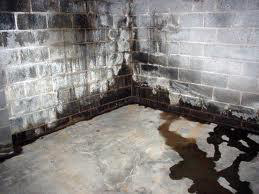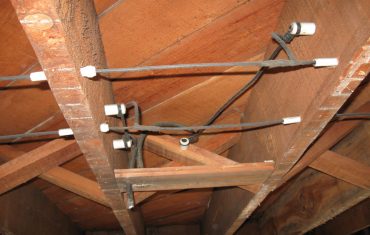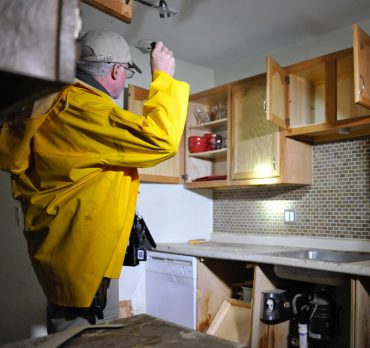
John Bleasby
The benefits of hiring a qualified home inspector prior to renovations
Canadian ContractorIt’s a small price to pay to avoid expensive surprises later
Allan Spisak is the Director/General Manager of ACISS Home & Commercial Inspection Consultants, based in Ontario, and a past Chair of the Professional Home & Property Inspectors of Canada (PHPI). Spisak’s presentation at the recent Building Show in Toronto revealed the benefits for contractors of hiring a home inspector prior to the start of a renovation project. John Bleasby caught up with Spisak after the show with some follow up questions.
In your presentation you said, “Home inspectors don’t inspect for code; they inspect for safety.” Does that open the door for contractors and inspectors to work together?
When a contractor meets with a client, they gather together the needs and expectations of the client. What you see so often, however, are issues that were not expected and resultant extra costs that weren’t expected to be incurred. A home inspector going through the home together with the contractor and the client opens up the opportunity to become aware of items that should be addressed outside of the cosmetic concerns — deficiencies that would be seen by a home inspector but not necessarily picked up by the contractor, but should be part and parcel of the renovation. Both parties are going to benefit. The client is going to benefit because they are going to have fewer surprises, and the chance of extras on the job. For contractors, an inspection helps because they don’t have to go back after the fact and say, “Oops! We found this problem or that problem that we didn’t expect.” That makes the job flow more smoothly for the contractor.

Mold and moisture in the basement due to seepage through concrete blocks must be addressed thoroughly before any renovation work can begin
I suppose it’s natural for clients to focus on the cosmetic aspects of a renovation, as opposed to the less-glamorous bones of the structure.
Absolutely. For example, homeowners often want to turn a basement into an attractive living space. However, if you don’t make sure that the basement is properly waterproof and dry before you do all the beautiful finishes, you’re throwing your money away. A home inspector would undertake to determine any potential for future leaks and any existing problems involving moisture during the inspection process.
What about conflicts due to bias based on who does the hiring of the inspector?
In our profession, we are unbiased. It doesn’t matter who we get paid by — our report would be the same.
Approximately how much would a home inspection cost for a home 50 or 60 years old and about 3,000 square feet?
Probably in the range of $500 to $700. A smaller semi-detached home in one of the mature areas of an urban center would be around $500. If you are a contractor, I think $500 is very well spent in the long run, certainly when compared to the cost of construction and the total cost of the project.

Knob and tube wiring: One of the big issues home inspectors often discover in older homes
Are there issues that come up consistently when you inspect an older home prior to a renovation that might possibly be overlooked by a contractor?
The electrical is always a big thing. An older home can be full of knob and tube wiring that can be hidden from obvious view. We also find a lot of electrical deficiencies because so many homeowners do their own work and are not really qualified. The second most common item before a renovation is the basement. We have to focus a lot on the potential for leakage. The average contractor is not going around with a moisture meter before he starts his job.
Are there misconceptions that contractors might have about home inspectors?
I don’t think that there are misconceptions so much as there are unqualified home inspectors out there. Just like any profession, if you have people who aren’t really qualified, they tarnish the name of that profession. Part of the problem is that in many provinces there are no educational qualifications. There might also be a little bit of pride on the part of some builders or contractors who believe they’ve done a good job, and then someone starts pointing out deficiencies.

Allan Spisak says that home inspectors can spot health and safety issues that a contractor and client may overlook.
What are the key credentials a contractor should be looking for in a home inspector?
There are several associations in Ontario and across Canada. The common thread for qualified inspectors is not just being a member of any given association but having gone through the process called a Test Inspection Peer Review (TIPR). That’s where the association send the inspector to a house that has been pre-inspected by a couple of examiners. The examiners come up with their list of deficiencies. The home inspector being tested then goes through that house and then sits down with the examiners, just as he would with a client, to go through his report. The inspector has to achieve at least 80 per cent of the health and safety deficiencies in order to pass his exam. So it’s very important that a client or a contractor hiring an inspector not just ask them about their association membership or how long they have been doing inspections — they should ask whether they have completed their Test Inspection Peer-Review. Then they need to go to that association and find out what level of membership the inspector has achieved. Every good association conducts a Test Inspection Peer Review.
Provinces across Canada are beginning to enact provincial licensing of home inspectors. British Columbia and Alberta already have, and Ontario is in the process of formulating regulations in coordination with the various associations in that province. Spisak feels that many of the concerns consumers and contractors might have about inspector qualifications will be reduced once licensing comes to their provinces —The licensing process, plus the cost of and errors and omissions insurance (to be mandatory in Ontario), will likely cull from the flock any home inspectors currently operating on the fringes.
Got feedback? Make your opinion count by using the comment section below,
or by sending an email to:
JBleasby@canadiancontractor.ca
Follow John on Instagram and on Twitter for notifications about his latest posts


Leave a Reply